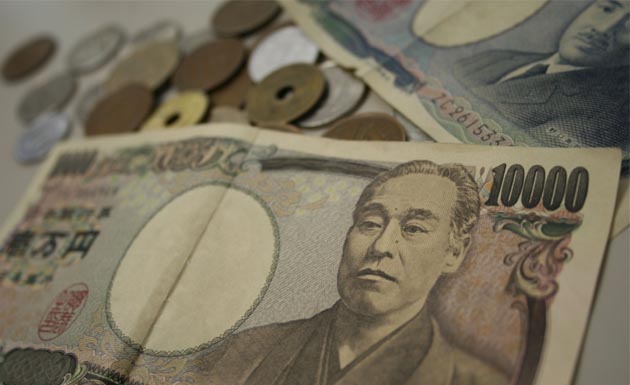Tagged: ethan devine
Japan’s freeters and the value of an education
Hiroki Iwabuchi lives in an apartment the size of a pool table. Within its four walls, he eats and sleeps, recording the misfortune of his life on a cheap Sony camcorder. Some would think he is a freeter — a term often used in Japan to refer to young slackers who live off of temporary service jobs — because he likes it, but he was once a college graduate.
Before landing his current full-time job at a nursing home, he worked as a manual labor assistant at a temp agency, as repairer at a Canon factory and many other odd jobs, earning only the minimum to get by. He paid a $10 fee to sleep in a chair at an Internet café and saved some change to pay the train fare for the next day. Eating McDonald’s was paradise.
But Iwabuchi is not the only one. The lack of opportunity for young Japanese is evident. Today, more than 20 years after Japan’s real-estate crisis, “only half of working 15-to-24-year-olds have regular jobs,” Ethan Devine, expert in Asian affairs and partner at Indus Capital Partners, writes for The Atlantic. Another 10 percent remain unemployed.
Since Devine says the U.S. workforce “will grow more slowly over the next 20 years than it has grown at any time in the past century,” Iwabuchi’s story becomes a relevant business lesson: economic fluctuations and crisis force young college graduates to scavenge for jobs, not by choice, but because they need to survive.
THE ‘REAL’ SHOCK
In 1990, Japan’s real-estate bubble burst gave birth to freeters and funemployment. In response to the economic hardship and the lack of full-time employment, Devine writes “young people rejected conformist Japanese culture and its 15-hour workdays.” Instead, they turned to unconventional jobs for some change and decided to hang out.
Yet, the word funemployment quickly lost the fun.
Today, nobody knows why Japan has not recovered from the global financial crisis of 2008 and 2009. Some, such as Devine, believe the different freeter generations to be the answer.
Most ’90s freeters never recovered from their generational slump and still live with their parents. Aging freeters file six of every 10 mental health insurance claims, Devine says.
Others have started to become herbivores, a term popularized by freelance writer Maki Fukasawa, which alludes to those men who reject the old image of Japanese masculinity and embrace a culture of uncompetitiveness, spend a lot of money on cosmetics and refuse to work. Some even wear bras for emotional support.
Megumi Ushikubo, president of Tokyo marketing firm Infinity and author of the bestseller “The Herbivorous Ladylike Men,” said for The Independent:
People who grew up in the bubble era (of the 1980s) really feel like they were let down. They worked so hard and it all came to nothing, so the men who came after them have changed.
A COMMON CHRONIC DISEASE
Japan’s economy suffers from a chronic disease, and companies have stopped to hire regular employers, but why?
Companies’ move to recur to sub-employment because of low profits has led young Japanese to choose between a temporary job and no job at all.
Some, such Naoki Shinada and David Autor, two prominent economists, relate the slow recovery and the current job insecurity to the freeters of the 1990s, Devine writes.
Devine explains Japan’s chronic job instability has had serious consequences and could have more. In 1992, 80 percent of Japanese workers had regular jobs. But this has changed over the years. Only half of those workers had regular jobs in 2006. Today, only 2 percent of nonregular workers aspire to have a regular work each year.
Shinada, an economist at the Development Bank of Japan, says companies use temporary and part-time workers to control costs and maintain flexibility at times of financial crisis.
However, if this becomes the standard hiring practice, it makes “it more difficult for firms to maintain some skills embodied in their labor force.” Unemployment and a less skilled workforce result on the long run because of this hiring practice.
Describing the standard as a lumpy adjustment, Autor, an MIT economist, further notes for Devine:
(Corporations) don’t make lots of little reorganizations each time things get slightly out of tune … (they) wait until things are way off, then make one big adjustment.
Deep recessions like the one Japan experienced force corporations to make adjustments, which cause major job reorganizations.
In the United States, youth unemployment is twice the national average, despite America’s recovery after the financial crash. Part-time employment went from 23 percent from ages 20 to 24 in 2008 to 30 percent in 2012, Devine says.
Ultimately, if companies in the United States, Japan or any other country do not invest in human capital (the knowledge and skills of its workforce), having a college degree won’t matter.
Even state intervention in the economy, as far as job training goes — which actually helped Iwabuchi secure his job after seven years of nonregular work — could help the problem, providing a path towards a stable job for freeters and non-degree holding individuals.
As Devine writes,
Modern economies rest upon the skills of their workforces, and so, although it is expensive and time-consuming to train young workers, wasting their potential will prove more expensive.
While earning a college degree does not secure graduates a job in today’s market, planning the reorganization of job vacancies and investing in training programs could save the economy. By doing so, the private sector and the government aim for stability and a cohesive future between employers and students.
Image credit: Rodrigo Nieves.
